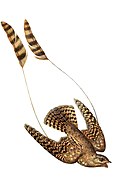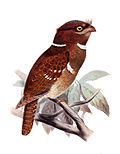| Chalybura | |
|---|---|
 | |
| Bronze-tailed plumeleteer (Chalybura urochrysia) | |
| Scientific classification | |
| Kingdom: | Animalia |
| Phylum: | Chordata |
| Class: | Aves |
| Clade: | Strisores |
| Order: | Apodiformes |
| Family: | Trochilidae |
| Tribe: | Trochilini |
| Genus: | Chalybura Reichenbach, 1854 |
| Type species | |
| Trochilus buffonii Lesson, 1832 | |
| Species | |
2, see text | |
The plumeleteers are a genus Chalybura of Neotropical hummingbirds in the family Trochilidae.








